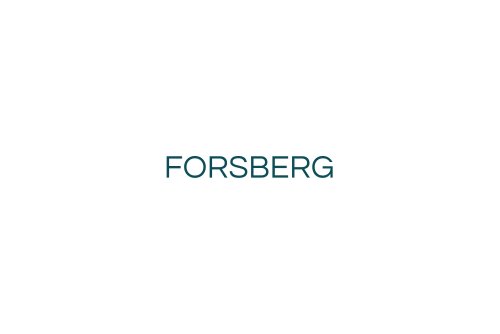Best Business Lawyers in Oslo
Share your needs with us, get contacted by law firms.
Free. Takes 2 min.
List of the best lawyers in Oslo, Norway
About Business Law in Oslo, Norway
Oslo, the capital of Norway, is a bustling hub for business activities, offering a dynamic environment for both domestic and international enterprises. The city boasts a well-established legal framework that supports business operations, safeguarding both small and large-scale enterprises. Business law in Oslo encompasses a range of legal issues, including corporate governance, contracts, mergers and acquisitions, taxation, and employment law. Given the intricate nature of business regulations, having a thorough understanding of these laws is crucial for anyone looking to establish or run a business in Oslo.
Why You May Need a Lawyer
Engaging a lawyer for business matters in Oslo can prove invaluable in numerous scenarios:
1. Company Formation: Navigating the legal requirements for setting up a business in Oslo can be complex. A lawyer can guide you through the registration process, ensuring compliance with local laws.
2. Contractual Agreements: Whether drafting, reviewing, or negotiating contracts, legal expertise can prevent future disputes and safeguard your interests.
3. Employment Issues: Understanding employment laws is essential to avoid potential lawsuits from employees. Lawyers provide advice on hiring practices, termination procedures, and employee rights.
4. Dispute Resolution: In case of business disputes, a lawyer can represent you in negotiations or court proceedings, aiming for a favorable outcome.
5. Compliance and Regulatory Matters: Businesses must comply with various regulations, such as environmental laws and industry-specific standards. Legal advice ensures adherence to these rules.
Local Laws Overview
Oslo's business laws cover several key areas:
1. Business Registration and Structure: Businesses must be registered with the Register of Business Enterprises. The common structures include sole proprietorship, partnership, limited liability companies (AS), and public limited companies (ASA).
2. Corporate Governance: Companies must adhere to governance standards, including the roles and responsibilities of board members, shareholder rights, and annual general meetings.
3. Contract Law: The formation, execution, and enforcement of contracts are governed to ensure fair dealings between parties.
4. Employment Law: Labor laws cover aspects such as employee rights, working conditions, health and safety regulations, and termination procedures.
5. Taxation: Understanding the taxation system, including corporate tax, value-added tax (VAT), and payroll taxes, is essential for compliance and financial planning.
6. Intellectual Property: Legal protection for trademarks, patents, and copyrights is crucial for safeguarding business innovations and brand identity.
7. Environmental Regulations: Businesses must comply with laws aimed at environmental protection, including waste management and emission controls.
Frequently Asked Questions
What is the process for registering a business in Oslo?
To register a business, you must submit an application to the Register of Business Enterprises (Brønnøysund Register Centre). This includes providing details about the business structure, ownership, and capital.
Do I need a lawyer to start a business in Oslo?
While it's not mandatory to have a lawyer, legal advice can help ensure compliance with local regulations and smoothen the registration process.
What are the common types of business structures in Oslo?
The common types are sole proprietorship, partnership, limited liability company (AS), and public limited company (ASA).
How are contracts regulated in Oslo?
Contracts are regulated to ensure fairness and legality. Key elements include offer, acceptance, consideration, and the intention to create legal relations.
What are the employer's obligations under Norwegian employment law?
Employers must adhere to rules on working hours, health and safety, employee rights, and non-discrimination. Proper documentation and fair treatment are essential.
How are business disputes resolved in Oslo?
Disputes can be resolved through negotiation, mediation, arbitration, or litigation. Legal representation is advisable to navigate these processes.
What are the key taxes that businesses must pay in Oslo?
Businesses must pay corporate tax, value-added tax (VAT), and payroll taxes. Compliance with tax regulations is crucial for avoiding penalties.
How can I protect my intellectual property in Oslo?
You can protect intellectual property through registrations of trademarks, patents, and copyrights with relevant authorities.
Are there laws specific to foreign businesses operating in Oslo?
Yes, foreign businesses must comply with Norwegian laws and may need to undergo additional registration processes depending on the business structure and industry.
What environmental regulations must businesses in Oslo comply with?
Businesses must comply with regulations related to waste management, emissions, energy use, and other environmental impacts to ensure sustainability.
Additional Resources
For more information and assistance, the following resources can be helpful:
1. Brønnøysund Register Centre: For business registration and official notifications.
2. Norwegian Tax Administration: For guidelines on taxation and compliance.
3. The Norwegian Labour Inspection Authority: For information on employment laws and workplace standards.
4. Innovation Norway: Offers support and resources for innovation and development in business activities.
5. Oslo Chamber of Commerce: Provides networking opportunities, business support, and legal information.
Next Steps
If you need legal assistance in business matters, follow these steps:
1. Identify Your Needs: Determine the specific legal help you require, whether it's related to business formation, contracts, disputes, or compliance.
2. Seek Recommendations: Ask for recommendations from business associates or professional networks for reputable lawyers specializing in business law.
3. Research and Compare: Look into the experience, expertise, and reviews of potential lawyers or law firms to find a suitable match.
4. Conduct Consultations: Arrange consultations with shortlisted lawyers to discuss your needs and evaluate their approach and understanding of your business.
5. Hire a Lawyer: Choose a lawyer who offers the best fit for your requirements and establish a clear agreement on fees and services.
6. Stay Informed: Keep yourself updated on any legal changes or developments that could affect your business operations in Oslo.
Lawzana helps you find the best lawyers and law firms in Oslo through a curated and pre-screened list of qualified legal professionals. Our platform offers rankings and detailed profiles of attorneys and law firms, allowing you to compare based on practice areas, including Business, experience, and client feedback.
Each profile includes a description of the firm's areas of practice, client reviews, team members and partners, year of establishment, spoken languages, office locations, contact information, social media presence, and any published articles or resources. Most firms on our platform speak English and are experienced in both local and international legal matters.
Get a quote from top-rated law firms in Oslo, Norway — quickly, securely, and without unnecessary hassle.
Disclaimer:
The information provided on this page is for general informational purposes only and does not constitute legal advice. While we strive to ensure the accuracy and relevance of the content, legal information may change over time, and interpretations of the law can vary. You should always consult with a qualified legal professional for advice specific to your situation.
We disclaim all liability for actions taken or not taken based on the content of this page. If you believe any information is incorrect or outdated, please contact us, and we will review and update it where appropriate.
Browse business law firms by service in Oslo, Norway
Oslo, Norway Attorneys in related practice areas.














